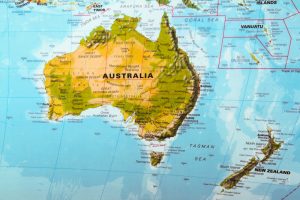In 2015 the Australian government created new laws that allowed it to strip Australian citizenship from dual nationals who had either been convicted of terrorism offenses, or due to their own conduct were deemed to have effectively renounced their rights as a citizen. These laws were created in response to the rise of transnational extremist groups like the Islamic State (IS), and the national security concerns that arose from the potential return of “foreign fighters.” The laws were aimed at people who had either engaged in acts of terrorism or otherwise demonstrated an ideological affinity with these groups through their actions.
While the argument that these laws were a vital national security tool may have some merit, the real objective of these laws was for Australia to be able to export their problems. A person’s dual citizenship offered Australia a way to avoid responsibility for repatriating and potentially prosecuting such people without being in breach of its obligations under the Convention on the Reduction of Statelessness.
However, attempting to export one’s problems obviously runs into further problems from the country you are trying to export them to. This has been the case with an Australian woman called Suhayra Aden, who in February was detained with two small children by Turkish authorities trying to cross into Turkey from Syria. Aden had travelled to Syria on an Australian passport in 2014 to allegedly live under the IS regime. In subsequent years she married two IS fighters (both now dead) and had three children, one of whom died of pneumonia.
Given that Aden was deemed to be demonstrating an ideological affinity with IS, the Australian government cancelled her citizenship. Yet her other citizenship was New Zealand, Australia’s close neighbor, cultural companion, and all-weather friend.
Aden was born in New Zealand; however, as is common with the freedom of movement between the two countries, she came to Australia as a 6-year-old. Given the bulk of her life was spent in Australia, her connection to Australia was far greater than to New Zealand. However, Australia refused to accept this line of reasoning because the citizenship-stripping laws are working exactly as intended and pushing an Australian problem onto someone else.
While New Zealand’s Prime Minister Jacinda Ardern made attempts to reverse Australia’s decision, this week Wellington was given no choice but to agree to repatriate Aden and her children from Turkey, or it would be in breach of its responsibilities to not render anyone stateless. However, the attempts to successfully integrate Aden and her children into New Zealand society will be hindered by her family being in Australia.
Alongside the case of Aden, Australia has recently been deporting people to New Zealand who have committed regular crimes in Australia. This may on the surface seem reasonable, but due to the unique relationship between the countries, many of these deportees may have New Zealand citizenship but have spent most or all of their lives in Australia and retain no family or other connections in New Zealand.
Australia feels it has the ability to export its problems to New Zealand because it sees Wellington having a permanent reliance on Australia. The New Zealand government may complain, but — Canberra calculates — it will never create a permanent fracture in the relationship.
New Zealand has refused to reciprocate. Wellington has not felt the need to export the Christchurch terrorist — an Australian — back to Australia, a man who has inflicted a much higher cost on New Zealand society than Aden or any of the deportees have cost Australia. Wellington has understood that to do so would further normalize the exporting of problems between the two countries, and undermine the Trans-Tasman Travel Arrangement.
New Zealand seems to have a more far-sighted understanding that the freedom of movement between the two countries was designed to build and maintain trust, and to consolidate and enhance the considerable bonds between the two countries. In contrast, Australia is demonstrating a knee-jerk self-interest, one that sees cases like Aden’s being divorced from the wider realities of the Australia-New Zealand relationship.
The advantages of the freedom of movement between the two countries require each country to carry the occasional burden. The overall benefits should be seen as outweighing these difficulties. Yet Canberra’s recent unwillingness to submit itself to this reality risks undermining the bonds of trust, goodwill, and mutual interests it has with its closest partner and friend.
































